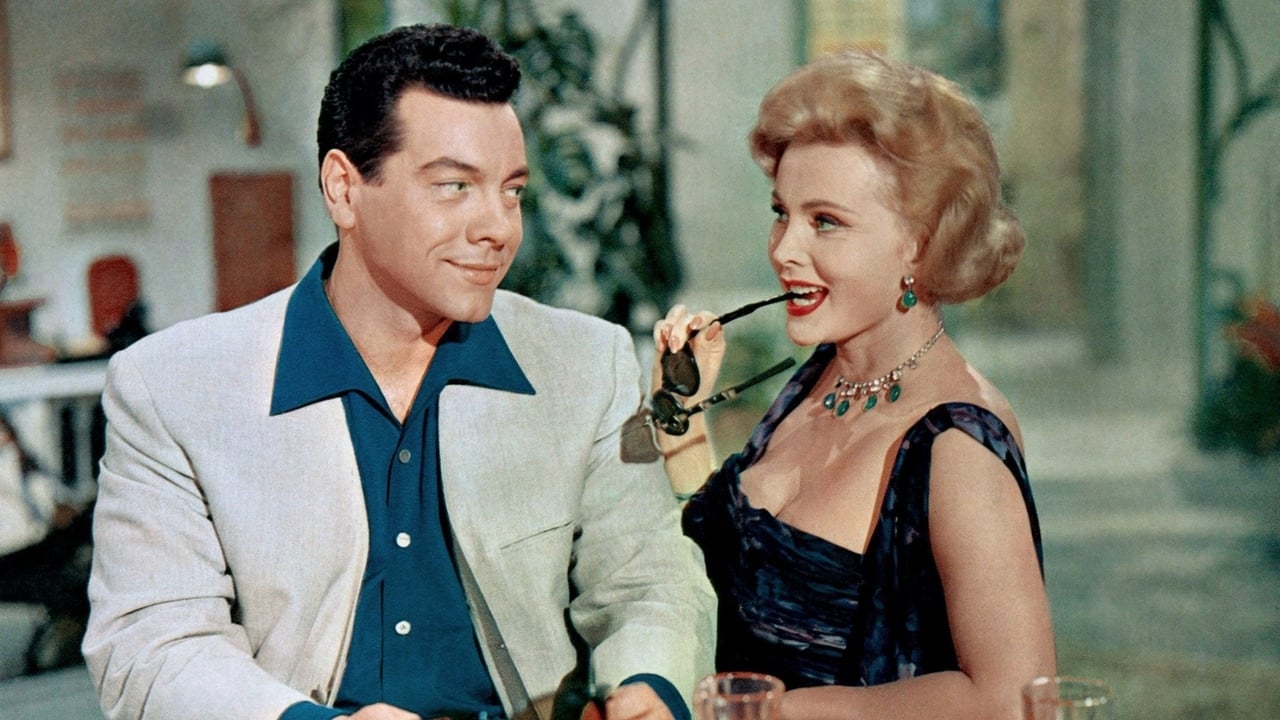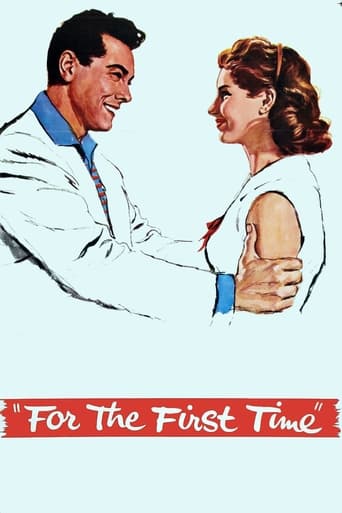

Lanza's last film is an enjoyable lightweight concoction with some lovely scenery and the star in glorious voice. The story is a bit hard to swallow but since his films were never the bedrock of reality this one is about par for the course. He performs many songs and as usual those are the strongest parts of the film since Mario was more of a personality than an actor but his part doesn't demand too much of him and he does fine with it. While Lanza sounds wonderful he's not looking his best, probably a result of his hard living ways which of course resulted in his passing shortly after the completion of this film. Someone who is a knockout is Zsa Zsa Gabor, her part is small but she perks up the picture every time she sweeps onto the screen beautifully dressed and oozing a sophistication that would be hard to find today.
... View MoreSpoilerWhile watching this film I was struck by the fanciful idea that this is really about health care in Italy in the late 1950s. Here we see Mario Lanza raising money for a deaf girl's operation by performing in a stunning series of operas. I suppose a lucky patient would have to be an attractive, virginal girl like the one in this film. Then I recalled that Mario was often called upon in real life to raise money for charities in this way. I began to think this must have been how health care evolved in Italy. With Mario's untimely death- some claim by the Mafia because illness caused him to miss a concert he had promised to give-some other system had to replace him.The film itself is an excellent opportunity to witness Mario's rapturous tenor in a variety of roles -Canio,Radames,Otelo among others. The locations are gloriously picturesque. The copy I saw was actually dubbed in German which made it more interesting.
... View MoreFor the First Time is a very beautiful movie worthy of a Lanza. We saw it when we were beginning to see the difference between the birds and the bees.¨For the first time, for the first time, I'm in love...¨ After that, all of us pre-teeners were trying to do a Lanza. Ít is extremely hard to find this kind of movie nowadays. The hundreds of million dollars needed to make a movie like this exceeds all our expectations, and the results often leave us frustrated, disgusted and disappointed. Maybe I'm down with Norman Desmond Syndrome, but I prefer the movies of the yesteryear, like this one. It is said that before one kicks the bucket, even if one is sick, one looks good. Eeriely, this is so with Mario Lanza. He gives his all here, and unsurprisingly so. After the decade of the fifties, gone forever is the Golden age of Hollywood when art is done for art's sake. Then came the Beatniks and the Hippies and the GenXers. Suddenly we are left with performers who challenge the lucidity of Ms. Anita Bryant and the Rev. Jerry Falwell. Our so-called movie moguls nowadays sadly lack the will to tap the likes of Luciano Pavarotti, Placido Domingo, José Carreras or Andreas Bocelli. O Sole Mio seems to belong to another dimension. Ubinam gentium sumus?
... View MoreThis MGM film showcases the great Mario Lanza, whose untimely death came right after this film was completed. It's a vehicle for the star, who had one of the most powerful tenor voices in the cinema. As such, "For the First Time" is an excuse to present its star in different European settings in a picture that is more of a travelogue than a musical.Rudolph Mate directed with an eye for the backgrounds being shown. We are taken to that magical island of Capri, then to Salzburg, among other places that go by too quickly. The DVD we watched had a faded look, and one can only guess the original copy had glorious colors.Mario Lanza plays an opera singer who goes to Capri to stay away from the scandal he caused at the Vienna Opera house for not showing for a performance, when in reality, he was outside entertaining the people that couldn't get inside. In Capri he meets sweet Christa, who happens to be deaf. They fall in love and she will not marry him unless she can hear him. Naturally, like in all fairy tales, everything comes true and everyone is happy at the end.Mario Lanza has some good moments in the film. He sings arias from Pagliacci, Aida and Othelo, as well as the theme song, "Come prima", in his usual style. Johanna Von Koczian is seen as Christa, the sweet girl who conquers Tonio Costa's heart. Kurt Kasznar plays Tonio's agent.This is a happy film without any pretensions. It's not Mr. Lanza's best film, but for all his fans it will be something to savor.
... View More